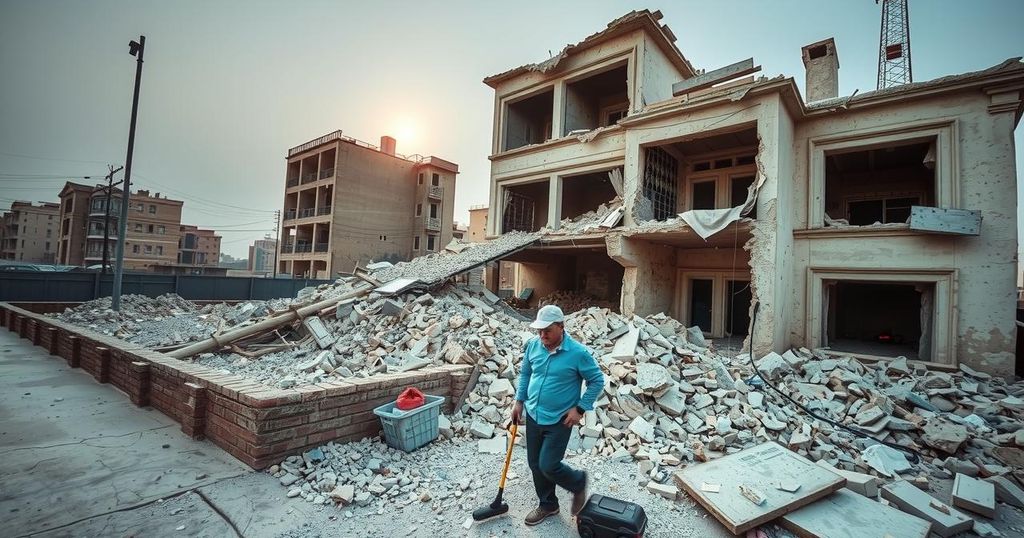The Aftermath of Syria’s Earthquake: A Nation at a Crossroads
Syria has experienced a sudden political shift following the earthquake, leading to the unexpected downfall of the Assad regime amidst takeover by Hayat Tahrir al-Sham. Questions arise regarding the future governance and stability of the country as it transitions from years of repression. The aftermath may present opportunities, as well as challenges, for foreign powers and neighboring nations in defining a new regional landscape.
The recent earthquake in Syria has dramatically altered the political landscape, leading to the unexpected collapse of the Assad regime. Although foreign allies like Russia and Iran were maintaining its stability, they too were caught off guard by the swift progress of Hayat Tahrir al-Sham (HTS). This group seized Aleppo and subsequently advanced towards Damascus, compelling Bashar al-Assad to seek refuge in Moscow, leaving the nation at a pivotal crossroads.
The developments raise crucial questions about Syria’s political and social future. How will the country transition from decades of authoritarian rule? What actions will international powers take following this upheaval? HTS’s leadership has advocated for national dialogue absent of foreign influence, emphasizing the need for a stable governance structure. The commitment expressed by Assad’s prime minister to engage with this new force could facilitate a crucial dialogue. If successful, Syria may avoid the detrimental power vacuum that resulted in prolonged instability in Iraq.
The geopolitical ramifications are complex. While Russia and Iran emerge as significant losers, the situation offers both opportunities and challenges for neighboring Turkey and Israel. Although they might seem poised for gains, the turmoil presents vulnerabilities, particularly regarding border security. A rejuvenated Syrian government is likely to assert control over its territorial claims, which could affect Turkey’s interests, especially concerning the Kurdish territories.
Amidst this turbulence, the excitement of the Syrian citizenry reflects a potential for positive change. The path toward dismantling the oppressive regime, fostering reconciliation across disparate social groups, and rebuilding national infrastructure remains fraught with challenges. Nevertheless, there is cautious optimism that the Syrian people will be afforded the chance to shape their own future.
The article addresses the political upheaval in Syria following the recent earthquake and the rapid downfall of the Assad regime. Traditionally supported by foreign powers such as Russia and Iran, the regime’s sudden collapse was underscored by the swift military advancements of Hayat Tahrir al-Sham. These developments have led to significant questions about Syria’s governance, societal structure, and the behaviors of foreign nations involved in the region, particularly in the wake of long-standing repression and conflict.
In conclusion, Syria stands on the precipice of a profound transformation following the recent earthquake and the collapse of the Assad regime. The potential for a new political landscape hinges on the establishment of a stable government and effective dialogue among factions within the country. While the Syrian populace expresses hope amidst the turmoil, the involvement of foreign powers and regional dynamics will significantly influence the outcome of this pivotal moment in Syria’s history.
Original Source: www.ekathimerini.com




Post Comment